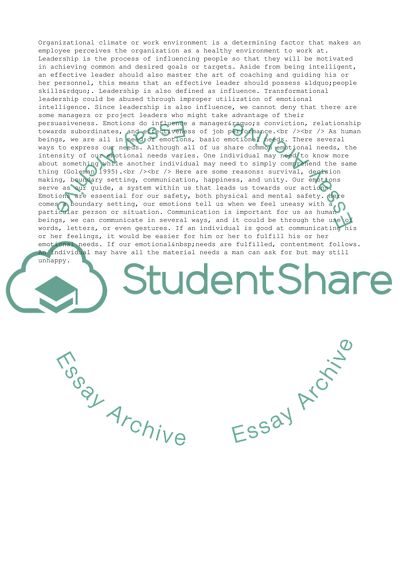Cite this document
(On Emotional Intelligence Case Study Example | Topics and Well Written Essays - 2250 words, n.d.)
On Emotional Intelligence Case Study Example | Topics and Well Written Essays - 2250 words. Retrieved from https://studentshare.org/management/1726726-emotional-intelligence
On Emotional Intelligence Case Study Example | Topics and Well Written Essays - 2250 words. Retrieved from https://studentshare.org/management/1726726-emotional-intelligence
(On Emotional Intelligence Case Study Example | Topics and Well Written Essays - 2250 Words)
On Emotional Intelligence Case Study Example | Topics and Well Written Essays - 2250 Words. https://studentshare.org/management/1726726-emotional-intelligence.
On Emotional Intelligence Case Study Example | Topics and Well Written Essays - 2250 Words. https://studentshare.org/management/1726726-emotional-intelligence.
“On Emotional Intelligence Case Study Example | Topics and Well Written Essays - 2250 Words”. https://studentshare.org/management/1726726-emotional-intelligence.


